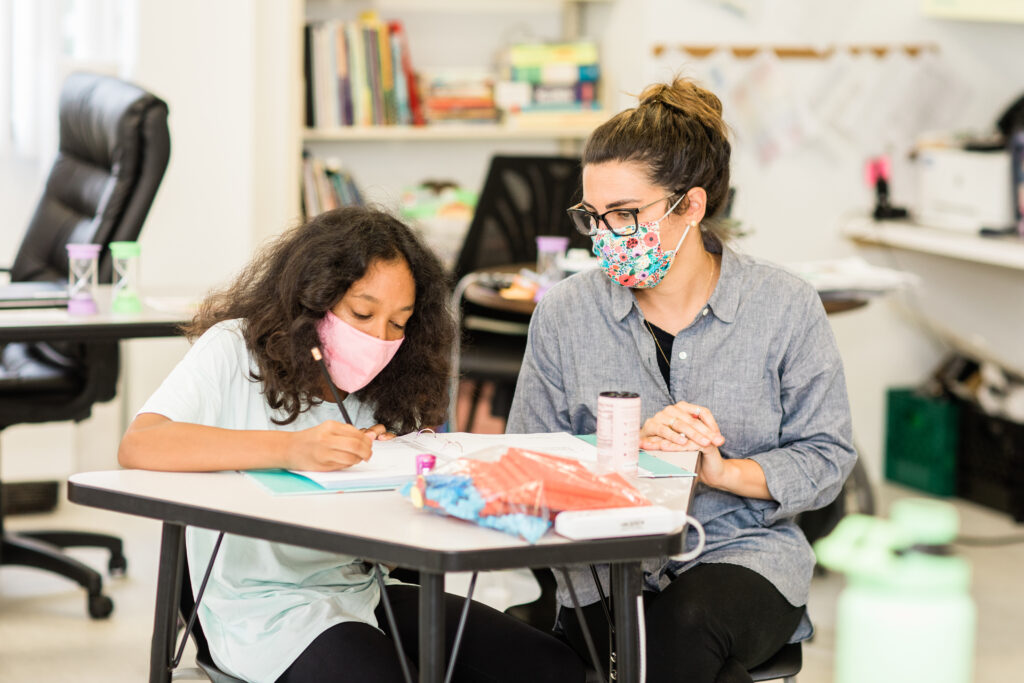Communities in Crisis: The Pandemic, School Refusal, and Mental Health Struggles – What We’re Not Talking About

We are in a mental health crisis.
The pandemic is once again disrupting our daily lives, and we have a significant number of children, tweens, and teens who are not going to school. The isolation that COVID necessitated has caused a myriad of mental health issues. The “rates of depression and suicidal behaviors have increased dramatically during the past decade, and especially during the past two years” (Our National Mental Health Crisis – Psychology Today Dec. 14, 2021). Clinicians noticed a spike in anxiety before the pandemic; since then, it’s skyrocketed out of control. Some younger children have never gone to school and don’t know how to follow a routine. Others have significant social anxiety. We’re seeing a lot of regression in terms of skills that students had previously acquired. We’re also seeing an increase in eating disorders, Obsessive-Compulsive Disorder (OCD), depression, and generalized anxiety disorder. With these mental health struggles comes a lot of school avoidance and refusal.
Parents are on the front lines with all this. When students were at home, parents were tasked with helping their children navigate online schooling. Now, many are having to assess and manage depressed, anxious, and withdrawn children.
Psychologists, psychiatrists, therapists, and other mental health professionals are inundated with clients. It’s normal to be put on a waitlist versus being able to directly and immediately access mental health support.
What makes this worse is the feeling of shame. As a parent, we don’t relish having to admit that our child is struggling. For some reason, we often feel that we’ve done something wrong and/or failed as a parent if our child is not doing well. Many try to manage it themselves and are overwhelmed. As Brene Brown has explained in several of her books, shame loves isolation. Meaning, if we keep our worries to ourselves, it grows and consumes us. However, if we share our struggles with someone, the burden gets a little smaller. When parents connect with others, they discover that they are not alone and can, in fact, support one another. We need to work together to help ourselves and our community. Chances are, someone in your family is struggling with a mental health issue. It’s hubris to think that if you’re a good enough parent, your child won’t be derailed at some point by something. One bit of advice I’ve told myself and others is: it’s not whether your child will struggle; it’s when and what will be the nature of the struggle.
So, what can we do if our child is struggling with mental health issues and/or school refusal? Below are a few resources that may be of help. I encourage parents to be a squeaky wheel: talk to your friends, school counselors, and anyone you know in the mental health field. Support is out there for you and your loved ones. Please don’t stay silent and suffer alone.
Resources:
Here are a few resources that may help struggling parents find a clinician and other support.
WISER: DC (Washington Independent Services for Educational Resources)
WISER is an interdisciplinary organization comprised of seasoned professionals who serve children, teens, tweens, and adults. They have an amazing directory on their website that is great one-stop shopping for clinicians, schools, and other mental health and educational resources.
This non-profit organization is dedicated to serving the community by providing those in need with free resources and professional referrals. They also have an extensive list of providers.
Posted in:

